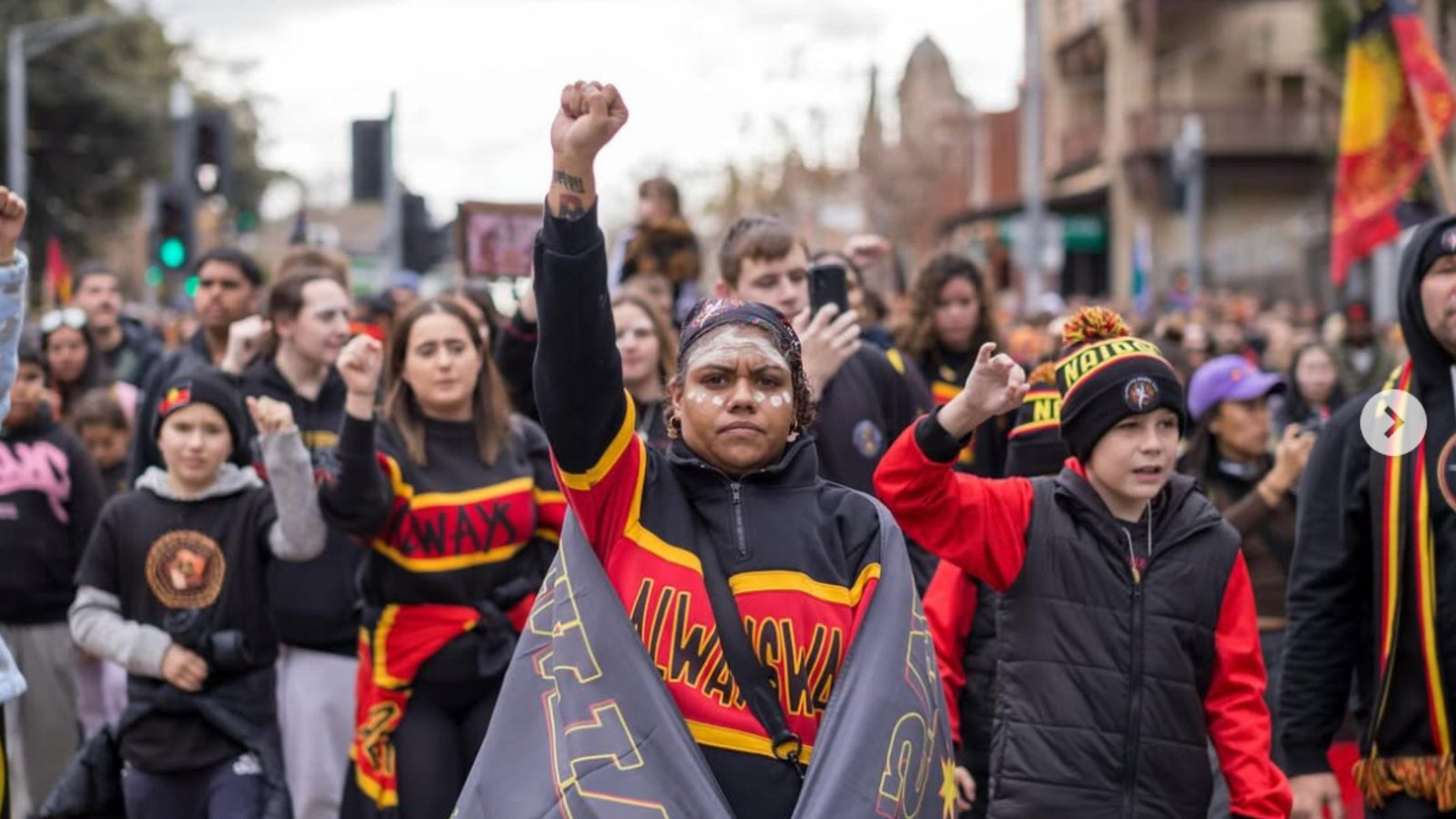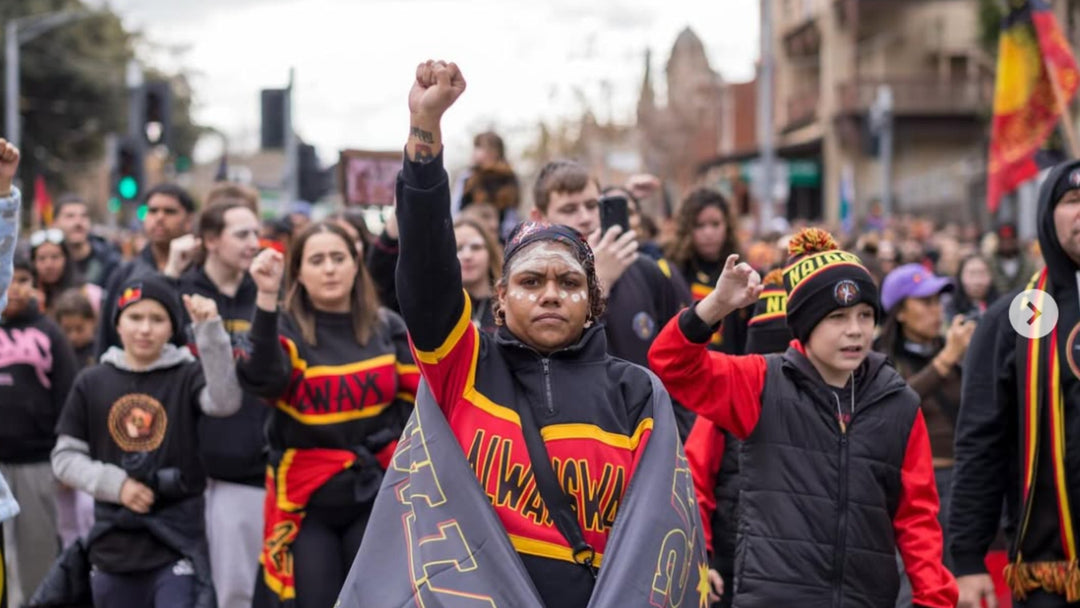The Origins of "Always Was, Always Will Be"

The phrase "Always Was, Always Will Be Aboriginal Land" has become one of the most powerful and widely recognised slogans in the fight for Aboriginal land rights and sovereignty. It speaks to the deep connection First Nations people have with their land, and the enduring truth that Aboriginal land has always been, and will always be, theirs—despite colonisation.
The roots of this phrase can be traced back to the Aboriginal land rights movement in far-western New South Wales, where it emerged from a conversation between two influential figures in the movement—the late Barkandji man, Uncle William Bates, and his father, Uncle Jim Bates.
A Turning Point in the Land Rights Movement
In the early days of the land rights movement, Uncle William Bates was leading rallies and working tirelessly to assert the rights of Aboriginal people to their ancestral lands. During one of these pivotal moments, a conversation took place between Uncle William and his father. It was here that the now-iconic phrase was born.
In a conversation about the growing impact of colonialism, Uncle William, expressing frustration, told his father, "It’s not your land anymore, whitefellas own it." Uncle Jim Bates, however, with wisdom passed down through generations, replied firmly: "No, they only borrowed it; it always was, and always will be Aboriginal land."

This simple yet profound statement became a rallying cry for Aboriginal communities across Australia. It captured the unbreakable bond between Aboriginal people and their land—a bond that cannot be severed by colonialism or legal frameworks that have never truly recognised the sovereignty of First Nations peoples.
The Enduring Legacy of the Phrase
Uncle Jim’s words resonated deeply and have continued to inspire generations of Aboriginal activists, educators, and allies. Today, "Always Was, Always Will Be Aboriginal Land" can be heard echoing at civil rights rallies, protests, and gatherings advocating for the recognition of Aboriginal sovereignty and land rights. It’s a call for justice, a demand for recognition, and a powerful reminder of the history that cannot be erased.
This phrase is not just a slogan; it’s a declaration of the ongoing connection that Aboriginal people have to their land—through all the trials, dispossession, and struggles. It asserts that the land, no matter who controls it or who claims ownership, has always belonged to its First Nations peoples and will continue to do so for generations to come.
The Fight for Land Rights
The land rights movement, which was in its infancy when Uncle Jim Bates spoke these words, has gained significant momentum over the years, but there is still much work to be done. The struggle for land restitution, recognition, and sovereignty is ongoing, with many Aboriginal communities continuing to fight for their rightful place on their traditional lands.
It’s important for us all to recognise the significance of this phrase and understand the deep cultural and political implications it holds. It speaks to more than just land—it’s about sovereignty, justice, and the fundamental right of Aboriginal people to control their own destinies.
Learn More Here
For those interested in learning more about the story behind this phrase and the wider context of Aboriginal land rights, the full article from ABC News offers more insights into the history and the individuals who shaped the movement.
Photo: Kaniesha Bamblett | Photographer: Benny Clarke










Leave a comment